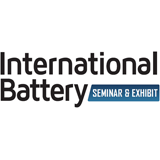|
Great interest in lithium iron phosphate (LFP) technology for rechargeable batteries
3/15/2012 |
|
|
Muttenz/Switzerland, 14.03.2012 - LiFePO4+C Licensing AG in Muttenz (Switzerland) has closed a sublicensing agreement granting to BASF rights to use key patents for the production and marketing of lithium metal phosphates (LMPs), and in particular lithium iron phosphate (LFP). LMP/LFP is an innovative cathode material whose excellent performance and superior safety profile make it the ideal choice, particularly for lithium ion batteries used in stationary applications and in the automotive industry.
The three patent holders, Hydro-Quebec (Canada), Universite de Montreal (Canada) and the Centre National de la Recherche Scientifique (CNRS - France), in association with Clariant subsidiary Sud-Chemie, reached an agreement in 2011 to grant a limited number of sublicenses in this technology through LiFePO4+C Licensing AG in order to address rapidly growing demand for reliable and authorized sources of LFP from battery producers and auto makers.
A licensing agreement for the manufacturing and sale of LMP/LFP exists between the patent holders and Sud-Chemie which has its own industrial LFP producing operations. There are also sublicense agreements between LiFePO4+C Licensing AG and two Japanese firms, Sumitomo Osaka Cement Co. Ltd. and Mitsui Engineering & Shipbuilding Co. Ltd. as well as with two Taiwanese companies, Tatung Fine Chemicals Co. and Advanced Lithium Electrochemistry (Cayman) Co. Ltd (ALEEES). Japan's Sony Corporation and the American corporation A123 Systems Inc. both hold licenses to manufacture LMP/LFP for use in its own battery production.
The BASF decision to opt for LMP/LFP technology lends additional impetus to the swift and widespread market penetration of LMP/LFP materials.
About LFP Technology
Lithium iron phosphate (LiFePO4, LFP) is a novel cathode material that, due to its high performance and unsurpassed safety profile, has a great deal of potential for use in next-generation lithium ion batteries, used among other things for hybrid and electric drives in the automotive industry and for stationary energy storage, for instance in solar energy. LFP material was discovered at the University of Texas in Austin in 1995 and licensed to Hydro-Quebec. When LFP material is coated with a thin layer of carbon, its conductivity is enhanced allowing LFP's unique performances. Such layer must be thin enough in order to permit lithium to pass through. These inventions were protected through the LFP carbon coating patents and the LFP carbon coating process patents co-owned by Hydro-Quebec, Canada, Universite de Montreal, Canada, and Centre National de la Recherche Scientifique (CNRS), France.
About Clariant (www.clariant.com)
Clariant is an internationally active specialty chemical company, based in Muttenz near Basel. The group owns over 100 companies worldwide and employed 22 149 employees on December 31, 2011. In the financial year 2011, Clariant produced a turnover of CHF 7.4 billion. Clariant is divided into eleven business units: Additives; Catalysis & Energy; Emulsions, Detergents & Intermediates; Functional Materials; Industrial & Consumer Specialties; Leather Services; Masterbatches; Oil & Mining Services; Paper Specialties; Pigments; Textile Chemicals.
Clariant focuses on creating value by investing in future profitable and sustainable growth, which is based on four strategic pillars: Improving profitability, innovation as well as research and development, dynamic growth in emerging markets, and optimizing the portfolio through complementary acquisitions or divestments.
In its battery materials activities, Sud-Chemie (www.sud-chemie.com), a Clariant Group Company, focuses primarily on developing and manufacturing lithium iron phosphate (LiFePO4, LFP) - a particularly safe and powerful cathode material. On the new site of its Canadian subsidiary, Phostech Lithium Inc. in Candiac/Quebec, Sud-Chemie is currently constructing the world's first industrial production plant for high quality LFP using a new, proprietary production process. Commercial production for series delivery will start in 2012 to reach a rate of 2,500 tons per year. Such volume, will allow the production of approximately 50,000 all-electric automobiles or, alternatively, up to 500,000 vehicles with hybrid drive per year.
About Hydro-Quebec (www.hydro.quebec.com)
Hydro-Quebec is a world renowned public utility which generates, transmits and distributes electricity. Its sole shareholder is the Quebec government. It uses mainly renewable generating options, in particular hydropower, and supports the development of wind energy through purchases from independent power producers. Hydro-Quebec invests more than $100 million in R&D in energy-related fields, energy efficiency and energy storage through its research institute IREQ every year. It has been conducting research in the battery field for over 30 years which comprises extensive work on advanced materials, particularly molten salts, lithium iron phosphate and nanotitanates for both high-power and high-energy batteries. Hydro-Quebec's contribution is helping to develop safe, high-performance lithium-ion batteries that can be charged more quickly and a greater number of times. The future success of plug-in vehicles largely depends on the battery.
About Universite de Montreal (www.umontreal.ca)
Universite de Montreal is the second largest university in Canada and one of the country's most cosmopolitan. From its founding in 1878, the university and its affiliated ecole Polytechnique and HEC Montreal schools have grown to reach a cumulative enrollment of more than 60,000 students, 7,000 of whom come from abroad. As Quebec's largest university and as a leading institution in the French-speaking world, Universite de Montreal awards more than 11,000 diplomas every year.
The university, its network of affiliated hospitals, and the affiliated schools bring together 2,500 professors and researchers, organized into over 300 research units that represent all the fundamental disciplines. Recognized for the intensity of its research both in Canada and abroad, Universite de Montreal's annual budget for basic and applied research exceeds $400 million, which enables students to work alongside internationally renowned specialists and participate in exciting breakthroughs.
Research initiatives undertaken by the university's community involve strong collaboration between specialists from different disciplines. Universite de Montreal supports high level interdisciplinary research programs in partnership with other institutions and industry, both at the national and international level.
The work on LFP results from a long term collaboration with Hydro-Quebec and CNRS.
About CNRS (www.cnrs.fr)
The Centre National de la Recherche Scientifique (CNRS - National Center for Scientific Research) is a government-funded research organization, under the administrative authority of France's Ministry of Research. Founded in 1939 by governmental decree, CNRS has the following missions: to evaluate and carry out all research capable of advancing knowledge and bringing social, cultural, and economic benefits for society ; to contribute to the application and promotion of research results ; to develop scientific information ; to support research training ; to participate in the analysis of the national and international scientific climate and its potential for evolution in order to develop a national policy. As the largest fundamental research organization in Europe, CNRS carried out research in all fields of knowledge, through its seven institutes, including Institute of Chemistry (INC), and three national institutes.
CNRS encourages collaboration between specialists from different disciplines in particular with the university thus opening up new fields of enquiry to meet social and economic needs. CNRS has developed interdisciplinary programs which bring together various CNRS departments as well as other research institutions and industry. Interdisciplinary research is undertaken in the following domains: Life and its social implications, Information, communication and knowledge, Environment, energy and sustainable development, Nanosciences, nanotechnologies, materials and Astroparticles: from particles to the Universe.
CNRS benefits from a worldwide renowned team on LFP through the Laboratoire reactivite et chimie des solides (LRCS - UMR6007). |
|
|
|
|
|






